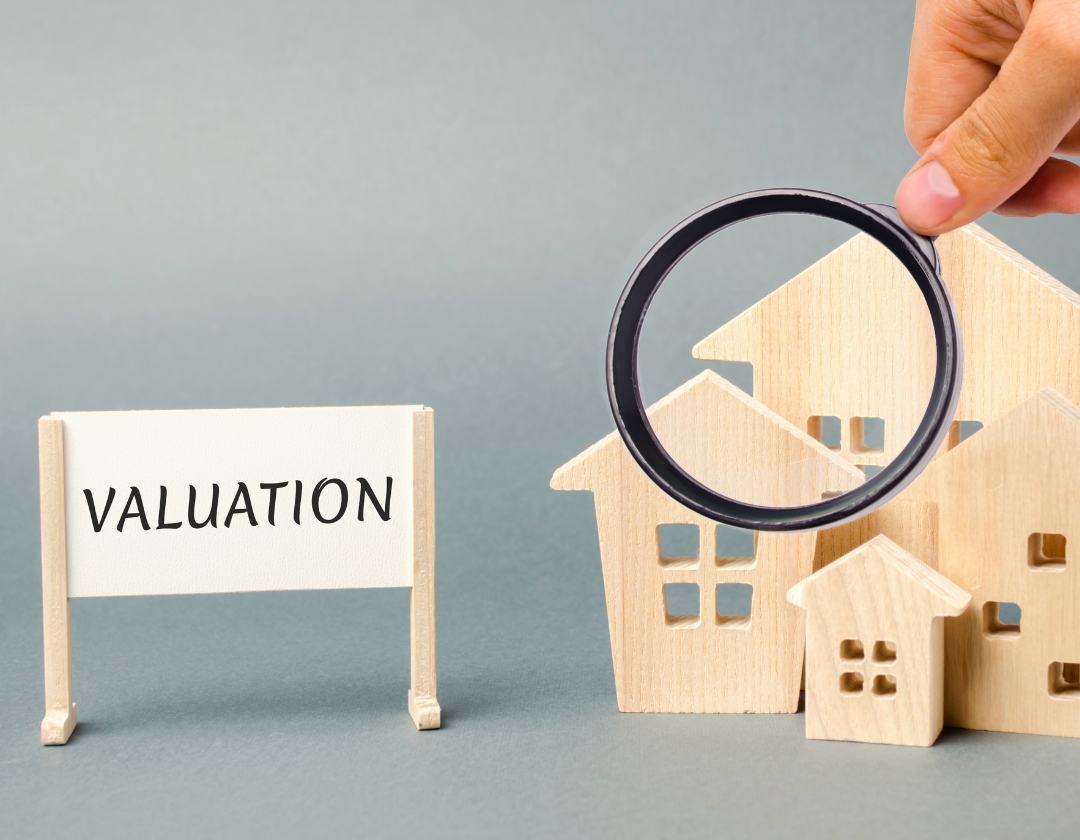
-
Mon to Fri: 08:00 am to 06:00 pm
Property Valuation Surveys for Financial Reporting: A Comprehensive Guide

Property valuation surveys play a crucial role in financial reporting for companies and businesses across various industries. A property valuation survey assesses the worth of a property, providing vital insights into its market value, potential risks, and investment opportunities. In this article, we will delve into the significance of property valuation surveys for financial reporting, the key elements involved, and the impact they have on making informed financial decisions.
Property Valuation Inspection?
Understanding Property Valuation Surveys:
A property valuation survey is an objective assessment of a property's current market value based on various factors such as location, size, condition, and comparable sales in the area. It helps stakeholders determine the fair value of a property, which is essential for financial reporting purposes, including balance sheets, financial statements, and tax compliance.
Key Elements and Factors Considered:
During a property valuation survey, several factors are taken into account to arrive at an accurate valuation. These factors include:
- the property's physical characteristics,
- proximity to amenities,
- economic trends,
- recent sales of similar properties in the vicinity.
Additionally, the purpose of the valuation, whether for investment, taxation, or financial reporting, influences the approach and methodology used.
The Role of Property Valuation in Financial Reporting:
Accurate property valuation is essential for companies to present a clear and transparent financial picture to stakeholders and investors. Real estate assets significantly impact a company's financial health, and an incorrect valuation can lead to misinformed decision-making and financial mismanagement. Investors, lenders, and regulatory authorities all rely on these valuations to assess the company's financial standing and potential risks.
Different Approaches to Property Valuation:
Various approaches are employed to determine the value of a property, including the cost approach, sales comparison approach, and income approach. The cost approach evaluates the property's worth based on the cost of replacing it, while the sales comparison approach compares it to similar properties that have recently been sold. The income approach focuses on the property's income potential, making it particularly relevant for commercial properties.
As per the International Valuation Standards (IVS), when conducting property valuations for financial reporting purposes, the report should meet the requirements of general valuation standards published by the international valuation standard committee or the Red Book as well as the applicable Financial Reporting guidance provided by the relevant Standards such as International Financial Reporting Standards (IFRS), and International Accounting Standards (IAS).
RICS Valuation – Global Standards (effective from 31st January 2022) mentioned that valuations for inclusion in financial statements require particular care as they must comply strictly with the applicable financial reporting standards adopted by the entity. Valuers are strongly advised to clarify at the outset which standards their clients have adopted, along with referencing the full definition of the relevant corresponding basis of value in reporting.
Standards in Property Valuation for Financial Reporting:
As per the provided standards, the below standards are mainly related to the property and assets in financial reporting;
· IAS 2 Inventories
· IAS 16 Property, Plant and Equipment
· IAS 17 Leases
· IAS 36 Impairment of Assets
· IAS 40 Investment Property
· IAS 41 Agriculture
· IFRS 3 Business Combinations
· IFRS 5 Non-current Assets held for Sale and Discontinued Operations.
Among the above, three main International Accounting Standards are particular to valuers.
1. IAS 16 Property, Plant and Equipment
The objective of this Standard is to prescribe the accounting treatment for property, plant, and equipment so that users of the financial statements can discern information about an entity’s investment in its property, plant, and equipment and the changes in such investment. The principal issue in accounting for property, plant, and equipment is the recognition of the assets, the determination of their carrying amounts, and the depreciation charges and impairment losses to be recognised in relation to them. (Source: ww.ifrs.org)
2. IAS 17 - Leases
The standards classify leases into two types:
· A finance lease is if the lease transfers substantially all the risks and rewards incidental to ownership.
· An operating lease if the lease does not transfer substantially all the risks and rewards incidental to ownership.
IAS 17 prescribes lessee and lessor accounting policies for the two types of leases and disclosures. (Source: www.ifrs.org)
3. IAS 40 Investment Property
The objective of this Standard is to prescribe the accounting treatment for investment property and related disclosure requirements. (Source: https://www.ifrs.org)
Ensuring Accurate Property Valuation:
To ensure accurate property valuations, companies often seek the expertise of professional valuation firms. These firms have experienced appraisers and use sophisticated methodologies to provide reliable and unbiased valuations. Collaborating with reputable valuation services, such as Realpoint's Property Valuation, can significantly enhance the accuracy of financial reporting.
Challenges and Pitfalls:
Property valuation is not without challenges. Fluctuating market conditions, property-specific complexities, and outdated data can impact the accuracy of valuations. Companies must remain vigilant and continuously reassess property values to reflect any market changes and ensure reliable financial reporting.
Accurate property valuations empower companies to make informed financial decisions. Whether it's determining the best time to sell or buy a property, securing financing, or gauging the potential for real estate investments, reliable valuations provide the necessary insights for strategic planning.
Industry-Specific Considerations:
Different industries may have unique considerations when conducting property valuations for financial reporting. For example, retail businesses might focus on foot traffic and location visibility, while manufacturing companies may value proximity to suppliers and distribution networks.
Property valuation surveys are integral to financial reporting, providing companies with essential information to assess their financial health, make informed decisions, and comply with regulatory requirements. Collaborating with experienced valuation services, like Realpoint's Property Valuation, ensures accurate and reliable valuations, strengthening financial reporting and enhancing stakeholder trust.
Realpoint Real Estate Consultancy team consists of experienced and certified professionals who are trained to identify potential issues and provide solutions to ensure that the property management company is cooperative. We are committed to providing high-quality services and delivering accurate and comprehensive reports to our clients. Our Technical Report will define the root cause of the problem, provide the necessary solution, define the damages caused by the problem and suggest the necessary repairs required along with the necessary budget
Comments
No comment found.



